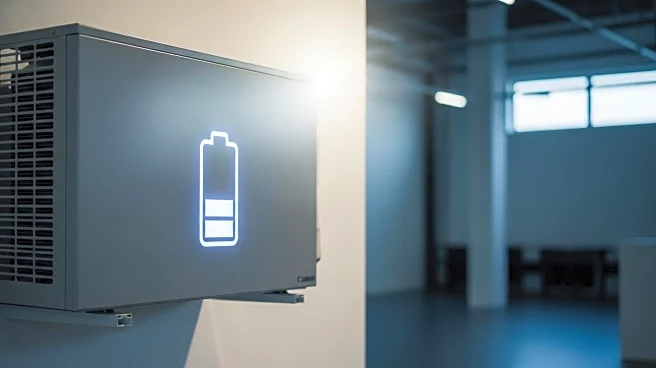What's Happening?
Carrier Global Corporation has initiated field trials for its next-generation battery-enabled HVAC systems, aiming to enhance grid resilience and support renewable energy integration. These systems, which pair variable-speed heat pumps with battery storage, are designed to shift energy use from peak to off-peak periods, providing greater flexibility and reducing demand on the aging U.S. power grid. Carrier Energy, the company's new energy management solutions business, is collaborating with utilities and EPRI to assess the role of homes as flexible Distributed Energy Resources.
Why It's Important?
Carrier's initiative is a significant step towards modernizing the U.S. power grid, which faces challenges from aging infrastructure and increasing energy demands. By leveraging smart home energy solutions, Carrier aims to provide utilities with tools to manage electricity demand more effectively. This could lead to improved grid stability and support the integration of renewable energy sources, contributing to a more sustainable energy future. The trials also highlight the potential for residential HVAC systems to play a role in energy management, offering new opportunities for homeowners and utilities alike.
What's Next?
As the field trials progress, Carrier will gather data to validate the performance of its battery-enabled HVAC systems. Successful trials could lead to wider adoption of these systems, providing utilities with a scalable solution to manage peak demand. Carrier's collaboration with EPRI and utilities may also pave the way for further innovations in energy management, potentially influencing policy and investment in smart grid technologies.








